Ethnocentric Critiques of the London Conference on Intelligence
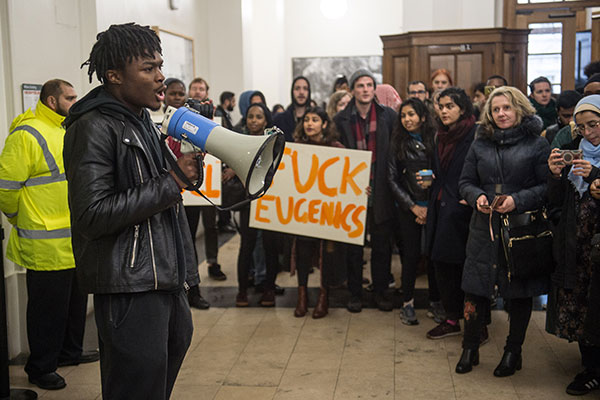
In January 2018, the anti-science Left that dominates British academia descended into spasms of fury. For decades it has done all that was within its growing power to stop scientists who refuse to let emotion stand in the way of their calling to pursue the truth from researching group differences in intelligence, and especially race differences. Researchers who have dared extend the logic of Darwinian Theory to human sub-groups would lose funding and have papers rejected out of hand from journals by increasingly Politically Correct reviewers, and they might even find themselves fired from their jobs.
But in January 2018, it was revealed that precisely these heretical researchers had been polluting the holy of holies for years. They had been holding an effectively secret conference, by invitation only, at one of Britain’s top universities — University College London — annually since 2015.

Toby Young
The evil of presenting the most straightforward theory based on the evidence, regardless of what dogmas this might undermine, had been happening under the Left’s very noses! UCL’s student newspaper, The London Student, revealed that the conference, organised by UCL honorary lecturer Dr James Thompson, had attendees that included Richard Lynn. Prof. Lynn had established that there are consistent race differences in IQ. It was also attended by numerous other academics connected to the race realist academic journal Mankind Quarterly, edited by Dr. Lynn, including one who had made a presentation on eugenics. Indeed, another version of the exposé, in the satirical magazine Private Eye, revealed that one of the attendees was Toby Young, a prominent conservative media pundit in the UK. His attendance insured that the ‘secret racist conference’ or ‘eugenic conference’ was reported in all the national newspapers and was even mentioned on television. The London Conference on Intelligence had ultimately come to the student journalists’ attention because Young had rashly mentioned it in a recently published speech to a leading conference on intelligence held in Montreal the previous summer.
Leftist students protested in front of UCL (see above photo) and petitioned for Thompson to lose his honorary position. UCL responded by launching an investigation, which is on-going, into Thompson’s failure to tell them that the conference would include ‘controversial’ people and topics. UCL stressed, of course, that they defended free speech, but opposed ‘racism’ in all its forms.
The conference presentations are now available online. They are a daring and fascinating mixture of subjects: race differences in intelligence, dysgenic fertility in the West, the impact of national testosterone levels on per capita Nobel prizes and even race differences in prevalence to ethnocentrism. Read more

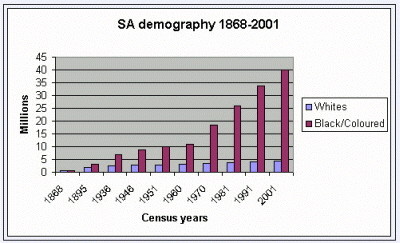
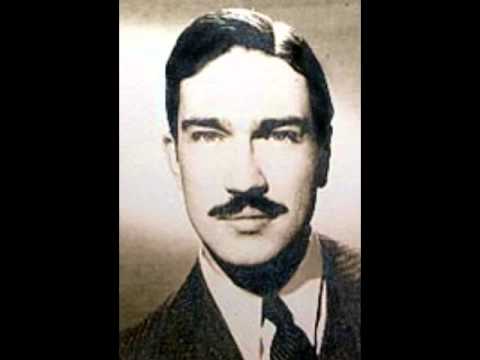
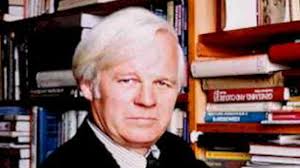
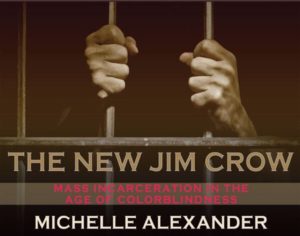 Michelle Alexander’s The New Jim Crow: Mass Incarceration in the Age of Colorblindness is a text I’ve come across many times over the years. In fact, I don’t know if there is a single time I have walked into a major bookstore and have not seen the book displayed in prominence on an end cap or center aisle table. I’ve encountered all the arguments made within the text over the years in articles, during debates, and in university classrooms as an undergraduate. Perhaps the significance of Alexander’s work is best assessed in the foreword by Cornel West: “The New Jim Crow is the secular bible for a new social movement in the early twenty-first-century America.” Although the data and arguments found within have been seen both before and after Alexander’s work, this is perhaps the most definitive and comprehensive work on the topic of Black crime and mass incarceration in America, as seen from the left.
Michelle Alexander’s The New Jim Crow: Mass Incarceration in the Age of Colorblindness is a text I’ve come across many times over the years. In fact, I don’t know if there is a single time I have walked into a major bookstore and have not seen the book displayed in prominence on an end cap or center aisle table. I’ve encountered all the arguments made within the text over the years in articles, during debates, and in university classrooms as an undergraduate. Perhaps the significance of Alexander’s work is best assessed in the foreword by Cornel West: “The New Jim Crow is the secular bible for a new social movement in the early twenty-first-century America.” Although the data and arguments found within have been seen both before and after Alexander’s work, this is perhaps the most definitive and comprehensive work on the topic of Black crime and mass incarceration in America, as seen from the left.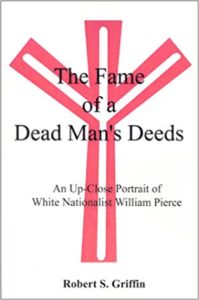 During the early 1970s, the late white activist Dr. William Pierce formulated a religious orientation he called Cosmotheism to provide the spiritual basis for the direction he was taking in his racial work. Pierce had serious reservations about Christianity’s appropriateness for white people and wanted to offer an alternative to it. The following material is drawn from my book on Pierce,
During the early 1970s, the late white activist Dr. William Pierce formulated a religious orientation he called Cosmotheism to provide the spiritual basis for the direction he was taking in his racial work. Pierce had serious reservations about Christianity’s appropriateness for white people and wanted to offer an alternative to it. The following material is drawn from my book on Pierce, 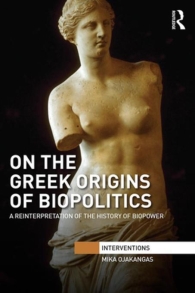 Mika Ojakangas, On the Origins of Greek Biopolitics: A Reinterpretation of the History of Biopower
Mika Ojakangas, On the Origins of Greek Biopolitics: A Reinterpretation of the History of Biopower


